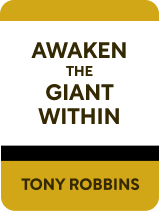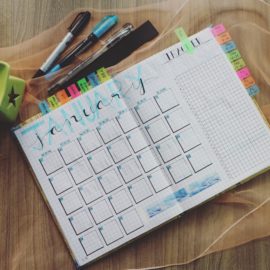

This article is an excerpt from the Shortform book guide to "Awaken the Giant Within" by Tony Robbins. Shortform has the world's best summaries and analyses of books you should be reading.
Like this article? Sign up for a free trial here .
Do you want to know how to change your beliefs? What practical steps can you take to reduce limiting ones?
Your beliefs dictate how you interpret your experiences, and these interpretations determine your decisions, which collectively shape your life. For this reason, it’s important that you don’t hold onto beliefs that are limiting or negative. Knowing how to change your beliefs and reduce limiting beliefs will improve your self-esteem and your reactions to difficult situations.
Keep reading to find out how to change your beliefs.
How to Change Your Beliefs With References
If you want to know how to change your beliefs, it’s important to know about references. At its heart, a belief is a feeling of certainty about an idea, and your certainty is based on the experiences that you’ve interpreted as evidence—or references—to support the idea. Since, through imagination, you can find or create references to support any belief, you can turn any idea into a belief. Furthermore, you have the power to adopt beliefs that empower you.
Global beliefs are the most influential beliefs, because they determine how you think about life or yourself as a whole. For example, you may have a global belief that life is a struggle. Altering your global beliefs through reconditioning can transform your life. Think of the impact of shifting from the belief that life is full of challenges to a belief that life is full of opportunities.
Another type of belief, a limiting belief, forms when your brain oversimplifies your experiences. For example, if you’ve failed at your first few attempts to launch a business, you may develop a limiting belief that you’re not cut out for entrepreneurship, overlooking the fact that most entrepreneurs endure and overcome failure.
Limiting beliefs can become self-fulfilling prophecies, as they inform your decisions, which dictate your actions, which shape your future. For instance, if you have the limiting belief that you’re not suited for entrepreneurship, then you won’t continue trying to start your own business, and you will never become an entrepreneur, essentially confirming your limiting belief.
To break your limiting beliefs, rely more heavily on references of imagination rather than experience. For example, as an aspiring entrepreneur, instead of focusing on your past experiences of failure, vividly envision yourself launching and growing a successful business. This will help you believe that you can do it.
While your generalizations about neuro-associations form your beliefs, your sense of certainty in those beliefs strengthens them. Without your certainty, a belief is merely an idea that holds little power over you. Your sense of certainty in a belief is based on the experiences that you’ve interpreted as evidence—or references—to support the belief. For example, if you believe that you can do anything, your references may be your past achievements.
References hold up your beliefs because they are experiences or imaginings that serve as evidence to support your beliefs.
The way in which you select, interpret, and organize your references determines whether they’ll empower or disempower you. For example, one cancer survivor can use the painful experiences of undergoing treatment and feeling isolated from healthy family and friends as proof that life is difficult and unfair. Alternatively, another cancer survivor can draw on references of her friends’ and family’s love and support and her eventual remission to support the belief that life is miraculous and full of second chances.
To improve your life, select and organize your references in empowering ways, which will support empowering beliefs and behaviors. In this article, we’ll explain:
- That there are different types of references, and that some are well-suited to support certain types of beliefs
- How to expand your library of empowering references
- How to change your beliefs
The Different Types of References
Let’s look at the different types of references and how you can use each to empower you:
Lived experiences are powerful references because you have the memory of feeling the pain or pleasure that came with each experience. Since life is full of ups and downs, you probably have experiences that could support either an empowering or disempowering belief in any situation—you just need to choose carefully. For example, if you flubbed a presentation at work, you may find memories of times when you’ve made mistakes and fallen short in the past, which would support a belief that you are consistently incompetent. Alternatively, you could choose to empower yourself through references of all the times you excelled at work and in other areas of your life, which support a belief that you are highly competent and merely had a misstep today.
Your imagination is a critical source of empowering references because it’s not limited by what’s already happened, but rather makes what could happen possible. Gather references from things that you imagine so vividly that it feels like it actually happened or that it could happen, and use these to support empowering beliefs about what could be. For example, athletes often visualize themselves successfully running plays, scoring points, and winning games—all of which helps them to make those visions a reality when it’s game time.
Use other people’s experiences as references. Books, poems, movies, television, podcasts, seminars, and other media can provide references you may not have encountered or considered on your own. For example, if you want to make a career change late in life, learning about how someone else close to your age successfully made this shift could provide a reference to support your belief that you can do it. Alternatively, you can use other people’s experiences as “contrasting references” to put things into perspective in your own life. On one hand, you can view the tragedies that befall so many people—and the inspiring ways they rise above them—as proof that your problems are minor and manageable by comparison. On the other hand, you can use other people’s incredible achievements as contrasting references that push you to strive for more.
Use faith as a reference when you don’t have any firsthand experiences that are pertinent, you don’t know of anyone else’s experiences that you could use, and you can’t even imagine what a positive future might look like. For example, if you’re coping with a tragedy and you can’t seem to find any silver lining, choose to believe that there must be something positive that simply isn’t apparent yet. Faith can be the reference holding up that belief.
Build a Library of Empowering References
Clearly, there are plenty of references already available to you—but you can create even more ammo for your empowering beliefs by pursuing experiences that expand your references. For example, you may have plenty of experiences that provide references supporting your belief that you are intelligent, but few references supporting a belief that you’re physically strong. Fortify this belief by trying new experiences that prove your physical strength: Start working with a physical trainer or join a recreational sports league.
Then, be aware of how you’re organizing your references to ensure you use them in an empowering way. For example, if you just finished a tough session with your trainer, you could organize the experience in one of two ways:
- You could focus only on this workout, placing the emphasis on your struggle. This may create the disempowering reference that supports the belief of exercise being hard and uncomfortable.
- You could focus on your overall progress, placing the emphasis on your strength. The exercise you struggled through today may have been something you couldn’t even attempt a few months ago. This will create an empowering reference to support the belief that your workouts are making a difference, so the struggle is worth it.
Apply It: Grow Your References
As we’ve discussed, you need a broad foundation of references to support your empowering beliefs. Take stock of some of your references, and brainstorm how you could expand your library of references. This exercise will help you discover how to change your beliefs:
- Write down five experiences that you feel significantly shaped your life. These experiences are examples of your references.
- For each experience, write a sentence or two about how it impacted you. If the experience has had a negative impact on you, take time now to think of how you could organize this reference in an empowering way.
- Write down two or three references you could add to your library to help you achieve the life you want. Come up with these by working backward: Envision your compelling future, think of the beliefs you’d need to have to reach that future, and then brainstorm references that would support those beliefs.
- Write down two or three references you would like to add, though they might not be absolutely necessary. For example, you could take an improv class to get references for being spontaneous and pushing yourself outside of your comfort zone.
- Review the references you want to add, and assign a timeline for acquiring each one.
Knowing how to change your beliefs will help you with changing your life, achieving your goals, and improving your self-esteem.

———End of Preview———
Like what you just read? Read the rest of the world's best book summary and analysis of Tony Robbins's "Awaken the Giant Within" at Shortform .
Here's what you'll find in our full Awaken the Giant Within summary :
- How to make transformational changes to your life through small adjustments
- How you create your destiny every time you start a sentence with “I am…”
- Strategies to take control of your thoughts and emotions






